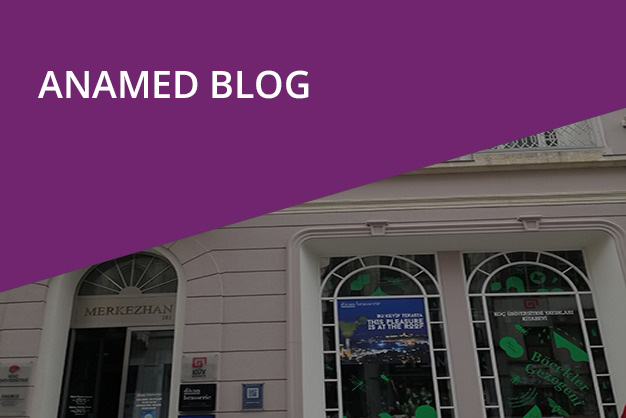
ANAMED provided me with invaluable support over the course of the 2020–2021 academic year. While I was unable to carry out the in-person research I had originally planned, ANAMED’s support helped me make progress on my dissertation in a variety of other ways.
My dissertation focuses on late Ottoman and French Mandate era Greater Syria (1880–1936). By examining how people come to identify as workers and then make claims or mobilize on this basis, I consider issues related to social movements, capitalist development, and state formation. Narratives of this period typically begin with top-down Ottoman imperial centralization and competing foreign encroachment, and conclude with European colonial domination. In this telling, the imposition of the French Mandate following WWI is understood as a sharp historical rupture in which all ties to the Ottoman past were broken, and the contemporary national boundaries of the region were drawn. My project foregrounds the new forms of collective action and social contestation that emerged in the late Ottoman period as a significant continuity across these two historical periods. As an ANAMED fellow for 2020–2021, I focused on organizing sources that I had collected on previous trips, familiarizing myself with newly available digital sources, further reviewing secondary literature related to my dissertation, and beginning the process of writing the dissertation.
ANAMED’s regular meetings for PhD, Post-Doctoral, and Senior Fellows provided an opportunity for us to exchange research ideas both formally and informally. Each week we would spend part of our meeting discussing and troubleshooting various fellows’ research dilemmas or developments. Oftentimes an issue that one fellow faced would turn out to be a common issue for several other fellows. This format allowed us to collectively think through various issues. After the informal discussion, every week a different fellow presented on their project to the rest of the cohort. Given the wide range of project topics, methodologies, and time periods, these presentations exposed me to unfamiliar areas of inquiry. I appreciated the opportunity to familiarize myself with my colleagues’ research and the related fields they work within.
Over the course of the year, I concentrated my energy on compiling scans of documents that I had collected on previous in-person research trips into an organized system. I then moved on and began to work through digital collections that were new or new to me, including the Center for Research Libraries’ Global Resources Network collection of newspapers and Universitat Bonn’s collection of Arabic and Ottoman journals. In the Spring semester, I also participated in the Columbia Global Center Istanbul’s “Voices of Emerging Scholars Series” organized by Dr. Zeynep Çelik and Dr. Merve İspahani. A version of the talk I gave, “Imagining the ‘Worker’ in Early Twentieth Century Beirut,” will be available in the Spring 2021 issue of the Journal of the Ottoman and Turkish Studies Association. The paper focuses on the writings of Fu’ad al-Shamali, a tobacco worker and labor organizer who co-founded Lebanon’s first communist party in 1924, and attempts to understand how historical actors define and advance their own understanding of a particular social category—in this case, the category of “the worker.”
I am grateful to the ANAMED faculty, staff, and cohort of fellows for providing a warm environment for our research this past year.

